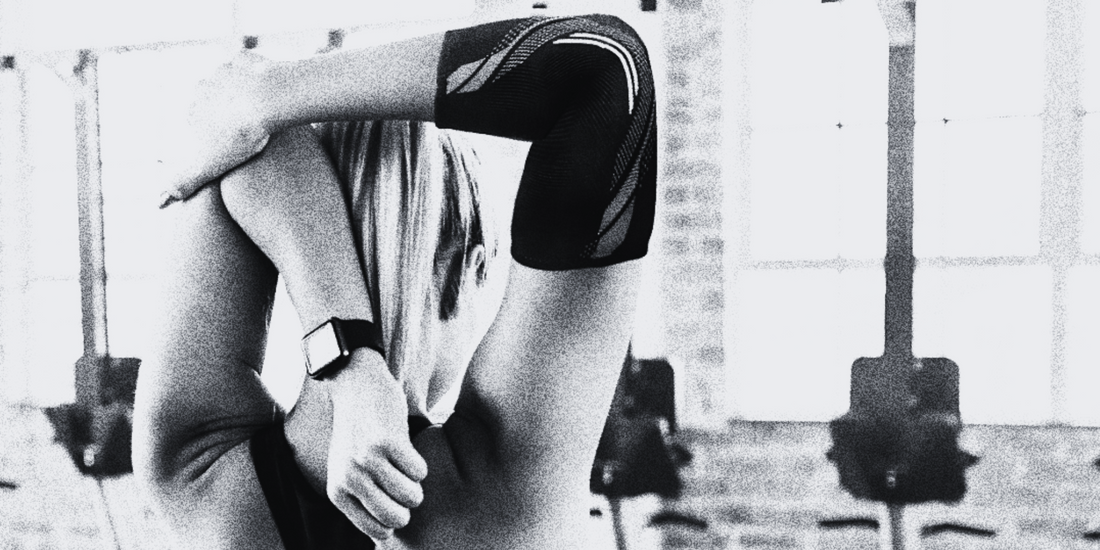
Why Compression Sleeves are Beneficial for Workouts and Running: Boost Your Performance and Recovery
Share
Compression sleeves have become a popular accessory for fitness enthusiasts, athletes, and runners. Whether you're hitting the gym, running a marathon, or simply engaging in intense physical activity, compression sleeves can offer a multitude of benefits for both performance and recovery. But what makes these sleeves so effective? In this blog post, we'll dive into the reasons why compression sleeves are beneficial for workouts and running, highlighting their positive impact on muscle recovery, injury prevention, and overall performance.
What Are Compression Sleeves?
Compression sleeves are tight-fitting garments made from stretchy, elastic fabric designed to apply gentle pressure to specific areas of your body, such as your arms, calves, or thighs. These sleeves are most commonly worn by runners, cyclists, and individuals involved in strength training, but they are beneficial for nearly any sport or physical activity. Compression garments come in different forms, such as compression socks, arm sleeves, or knee sleeves, and can be used to target specific muscle groups for a more focused effect.
1. Enhanced Blood Circulation and Oxygen Delivery
One of the primary benefits of compression sleeves is their ability to improve circulation. When worn during workouts or running, compression sleeves help stimulate blood flow, which promotes the delivery of oxygen and nutrients to your muscles. This increased blood flow can improve athletic performance by helping muscles work more efficiently during activity. Enhanced circulation also assists in removing waste products, such as lactic acid, which can build up during intense physical exertion and lead to fatigue and soreness.
2. Reduced Muscle Fatigue and Soreness
Compression sleeves can significantly reduce muscle fatigue and the onset of delayed onset muscle soreness (DOMS) following intense physical activity. By applying consistent pressure to the muscles, compression helps prevent excessive muscle vibration during high-impact movements, such as running or weightlifting. This reduction in muscle oscillation can help minimize tissue damage and soreness, allowing for a faster recovery process.
In fact, many athletes report feeling less sore and fatigued after wearing compression sleeves during their workouts, allowing them to train harder and more frequently.
3. Injury Prevention and Support
Compression sleeves provide additional support to your muscles and joints, helping to reduce the risk of injury during both workouts and running. The constant, gentle pressure helps stabilize muscles, tendons, and ligaments, offering an extra layer of protection against strains, sprains, and overuse injuries. For runners, compression sleeves can help alleviate discomfort caused by shin splints, a common injury in long-distance running, by providing support and reducing the impact on your lower legs.
Compression garments can also assist in preventing swelling by improving venous return (the return of blood to the heart) and limiting the build-up of fluid in the tissues, which can be particularly beneficial for those who participate in long, endurance-based activities.
4. Improved Performance and Endurance
Wearing compression sleeves during a workout or while running can enhance your athletic performance by improving endurance. The combination of increased oxygen flow to the muscles and reduced muscle fatigue allows you to push harder and longer during your workout. With less muscle soreness and fatigue to contend with, athletes are able to train more efficiently, perform better, and achieve their fitness goals faster.
Whether you're training for a race or simply trying to improve your overall fitness, compression sleeves can help you get the most out of your exercise routine. Many runners, for example, report feeling less fatigued during long runs and experience fewer aches and pains afterward.
5. Quicker Recovery Post-Workout
Compression sleeves are not only useful during your workouts or runs, but they also play a crucial role in post-workout recovery. After intense physical exertion, your muscles require time to repair and rebuild. Wearing compression sleeves after exercise can accelerate this recovery process by improving circulation and reducing swelling.
By helping the body remove metabolic waste and by supporting the delivery of nutrients needed for muscle repair, compression sleeves promote faster recovery times. This means less downtime between workouts and the ability to train more frequently or at higher intensities.
6. Comfort and Durability
Aside from the performance benefits, compression sleeves are designed to be incredibly comfortable and durable. Made with breathable, moisture-wicking fabrics, they help keep you dry during workouts and prevent overheating. Whether you're running in the rain or working up a sweat in the gym, compression sleeves maintain their functionality without compromising comfort.
The durability of these garments ensures they can withstand frequent use, making them a smart investment for athletes and fitness lovers who want to get the most out of their gear.
Conclusion: Why Compression Sleeves Are Essential for Workouts and Running
Compression sleeves offer a range of benefits that can significantly enhance your workouts and running performance. From boosting blood circulation and oxygen delivery to preventing injuries and improving recovery, these garments provide support that can make a big difference in your training routine. Whether you're looking to increase endurance, reduce soreness, or simply support your muscles during intense activity, compression sleeves are a valuable addition to any athlete's gear collection.
So, if you're looking to take your fitness game to the next level, give compression sleeves a try. Your muscles will thank you

